Semiconductors are often associated with rigid silicon wafers etched with intricate circuits, powering everything from computers to smartphones. However, a new frontier in semiconductor technology is challenging this image, shifting from rigid silicon to a more versatile, adaptable, and organic solution: soft semiconductors. This emerging field holds transformative potential for wearable technology, medical implants, environmental sensors, and even "smart" skin that could enable robots to sense touch.
As demand for wearable, adaptable, and biocompatible devices grows, soft semiconductors are poised to address the limitations of traditional circuits, though challenges in performance, stability, and manufacturing still lie ahead. This shift from rigid to resilient materials is both necessary and inevitable, driven by rapid advancements in materials science and device engineering. Soft semiconductors promise to redefine electronics, making them more intimate, adaptive, and integrated into daily life, bringing us closer to a world where technology becomes a seamless part of our existence.
What defines soft semiconductors?
Soft semiconductors are materials that exhibit semiconductor properties but, unlike traditional silicon, are inherently flexible and stretchable. These materials are typically polymers, organic molecules, or even some forms of hybrid inorganic-organic compounds. They can be moulded, bent, and stretched without losing their electrical conductivity or functionality, making them ideal for applications where traditional, rigid semiconductors fall short.
This story is from the December 2024 edition of Electronics For You.
Start your 7-day Magzter GOLD free trial to access thousands of curated premium stories, and 9,000+ magazines and newspapers.
Already a subscriber ? Sign In
This story is from the December 2024 edition of Electronics For You.
Start your 7-day Magzter GOLD free trial to access thousands of curated premium stories, and 9,000+ magazines and newspapers.
Already a subscriber? Sign In
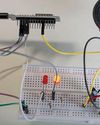
ESP32-Powered AUDIO-VISUAL SIREN
This sound alternator is designed to simulate the effects of a police siren, combining sound and light to create a dynamic audio-visual experience.
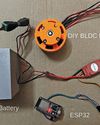
BLDC MOTOR With Web-Based Speed Control Using ESP32
Integrating wireless control into brushless direct current (BLDC) motor systems opens up exciting possibilities for applications such as remote-controlled cars, robots, and other innovative systems.
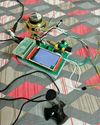
Pi Zero Portable BILINGUAL TRANSLATOR
This system is designed as a bilingual translator, leveraging the gTTS library to support multiple Indian languages, including English (en), Bengali (bn), Gujarati (gu), Hindi (hi), Kannada (kn), Malayalam (ml), Marathi (mr), Tamil (ta), Telugu (te), and Urdu (ur).
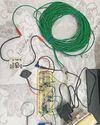
Op-Amp-Based VEHICLE THEFT DETECTOR
A simple, low-cost device can effectively alert homeowners or occupants if a parked vehicle is moved or tampered with.
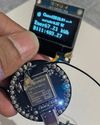
loT SMART METER With Dashboard
Energy meters in homes track electricity usage, enabling accurate billing by governments and providers.

Choose The Right Cloud Platform For Implementing loT PROTOCOLS
Working with loT protocols like MQTT, AMQP, and CoAP on cloud platforms is essential for developing scalable and efficient lol applications. The choice of the programming platform will depend on factors like project requirements, existing skills, and target devices. Leveraging the appropriate libraries and cloud services can enable seamless integration of lol devices with cloud-based applications.

Why TMR SENSORS Lead Next-Generation Design
TMR sensors are gaining traction in industries needing precision and power efficiency. What makes them the go-to choice for modern designs?
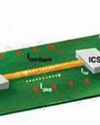
DESIGNING PCBs For EMI Management
Electromagnetic interference can derail your PCB’s performance. EMI management is not just a technical necessity but a hallmark of exceptional PCB design.

CUTTING COSTS, NOT CORNERS: Building Large Scale Applications With Open Source Software
Here are some strategies and best practices for leveraging open source to create enterprise-grade web and mobile applications without sacrificing quality or functionality.
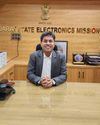
"We Are One Of India's Very Few State Bodies To Manage The Entire Lifecycle Of The Electronics EcosystemFrom Approvals To Subsidies."
What is Gujarat State Electronics Mission GSEM), and how is it attracting major investments in electronics manufacturing, particularly semiconductor manufacturing, to Gujarat? To delve deeper, Electronics For You’s Nijhum Rudra spoke with Manish Gurwani, the head of GSEM. Here is what he revealed...